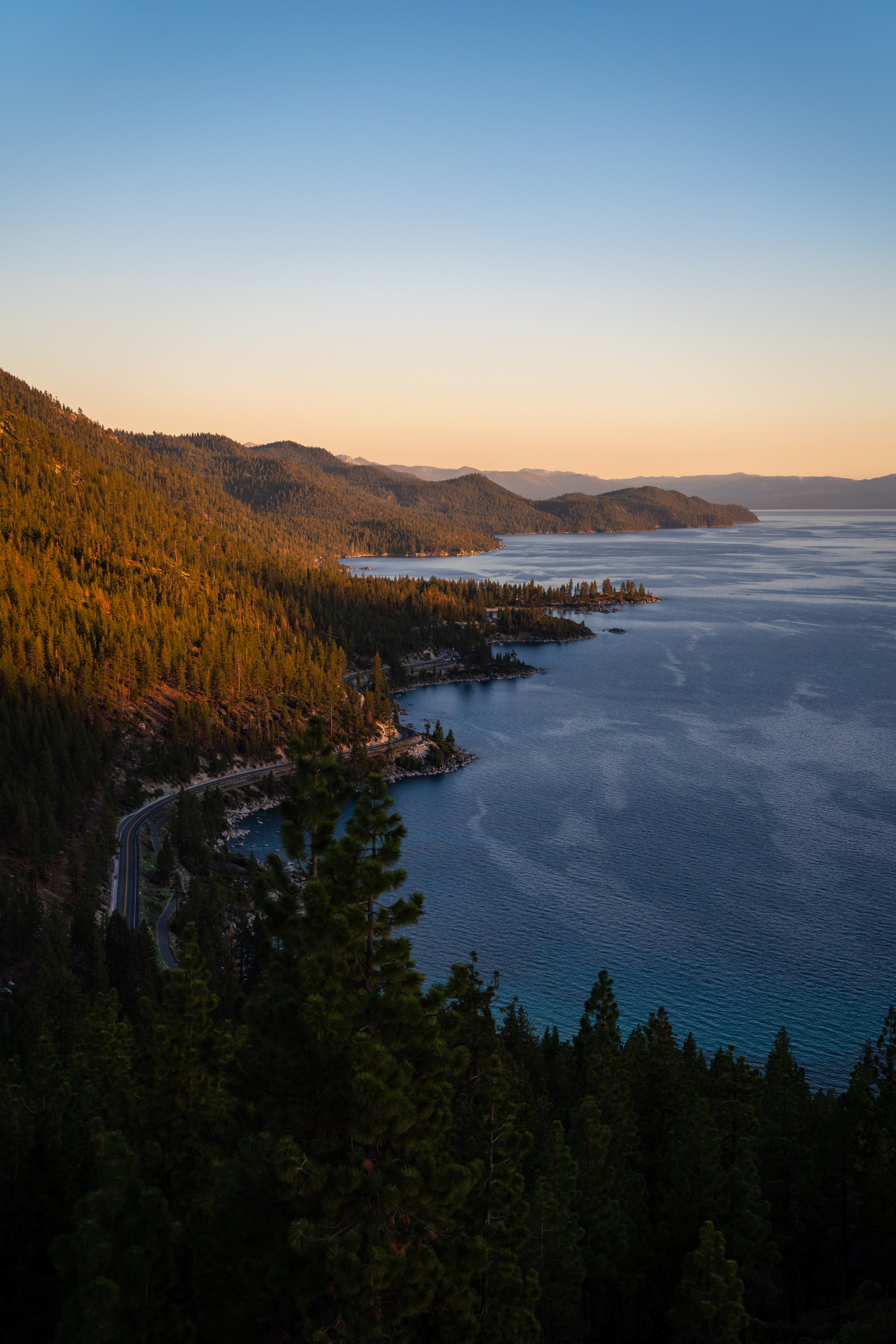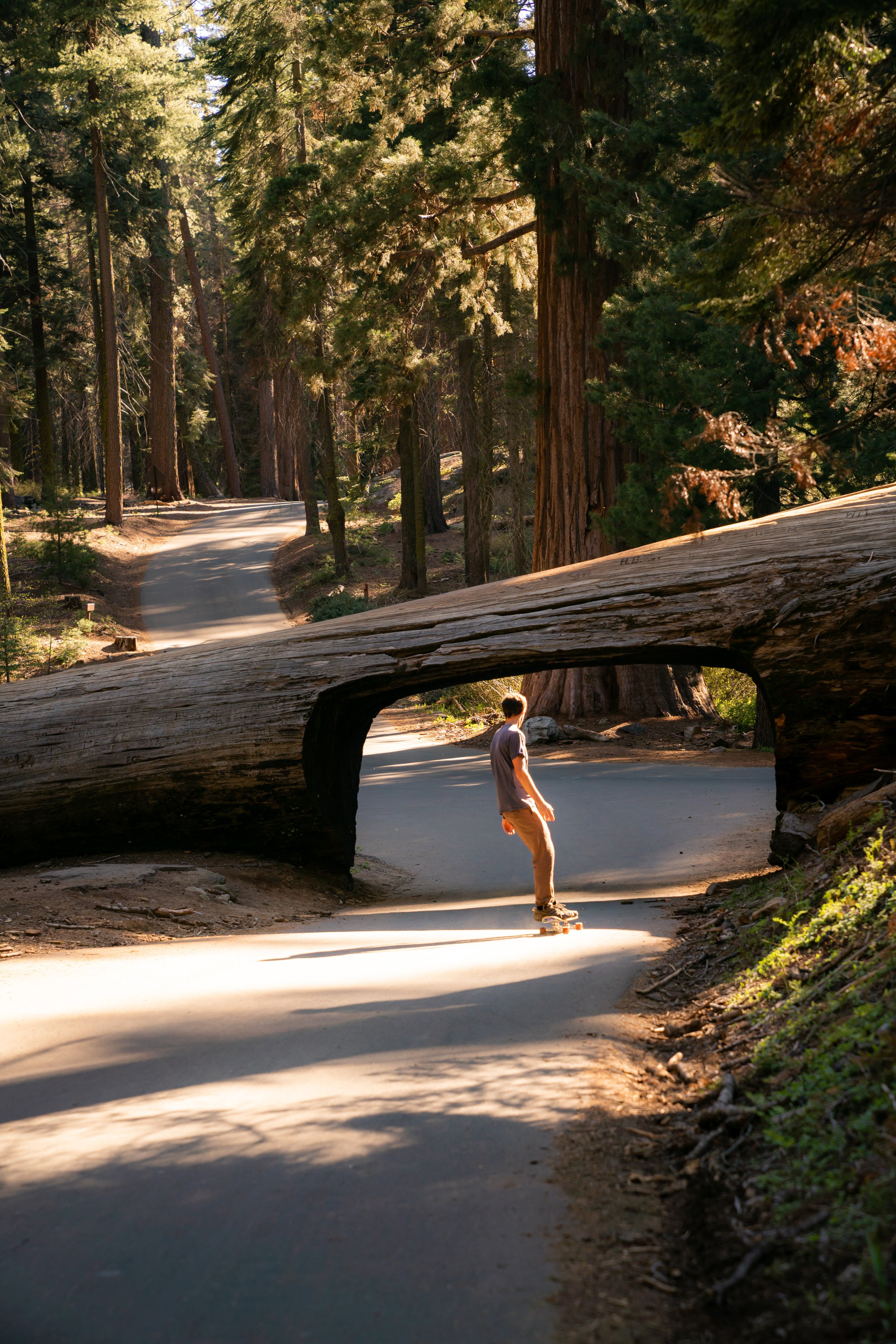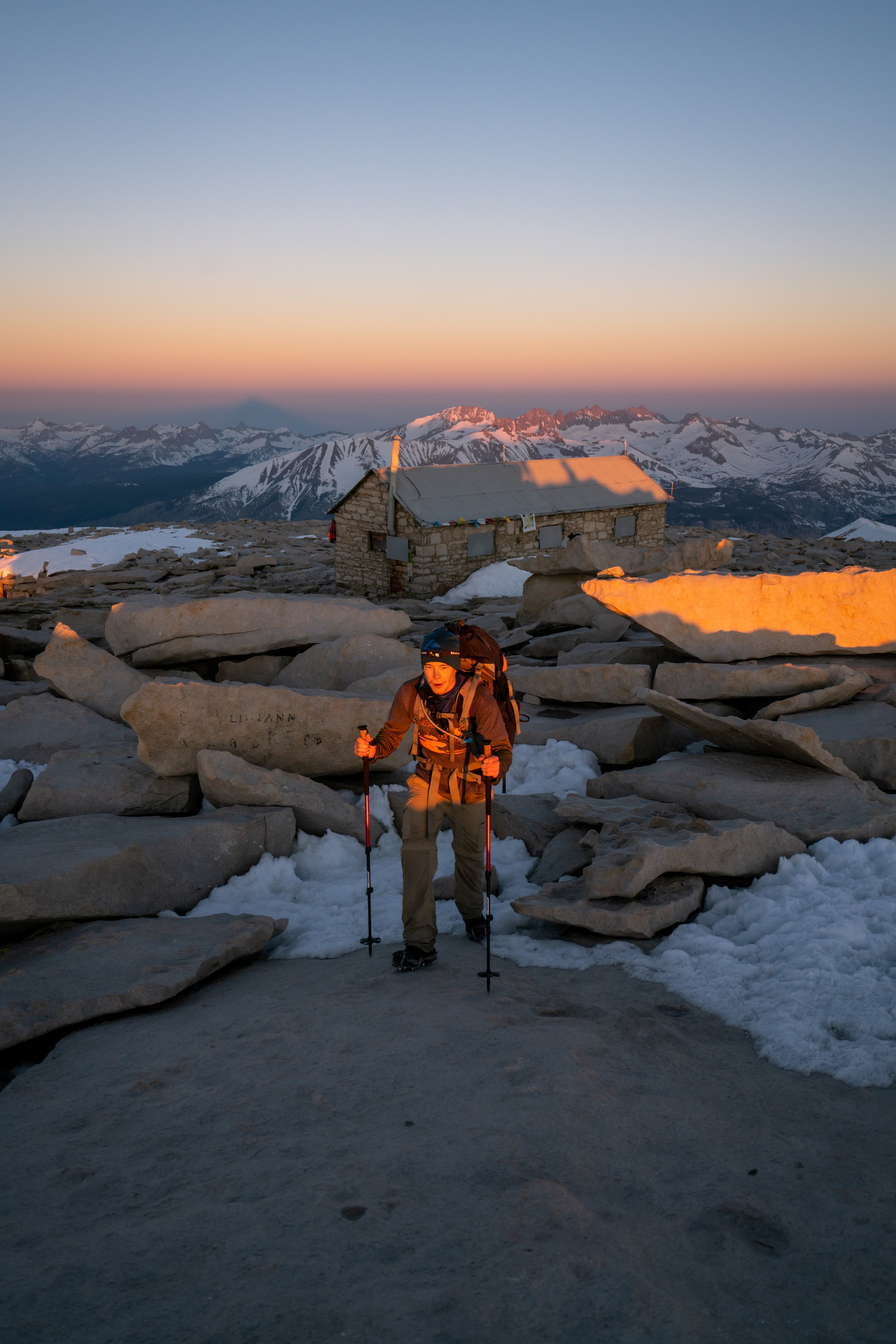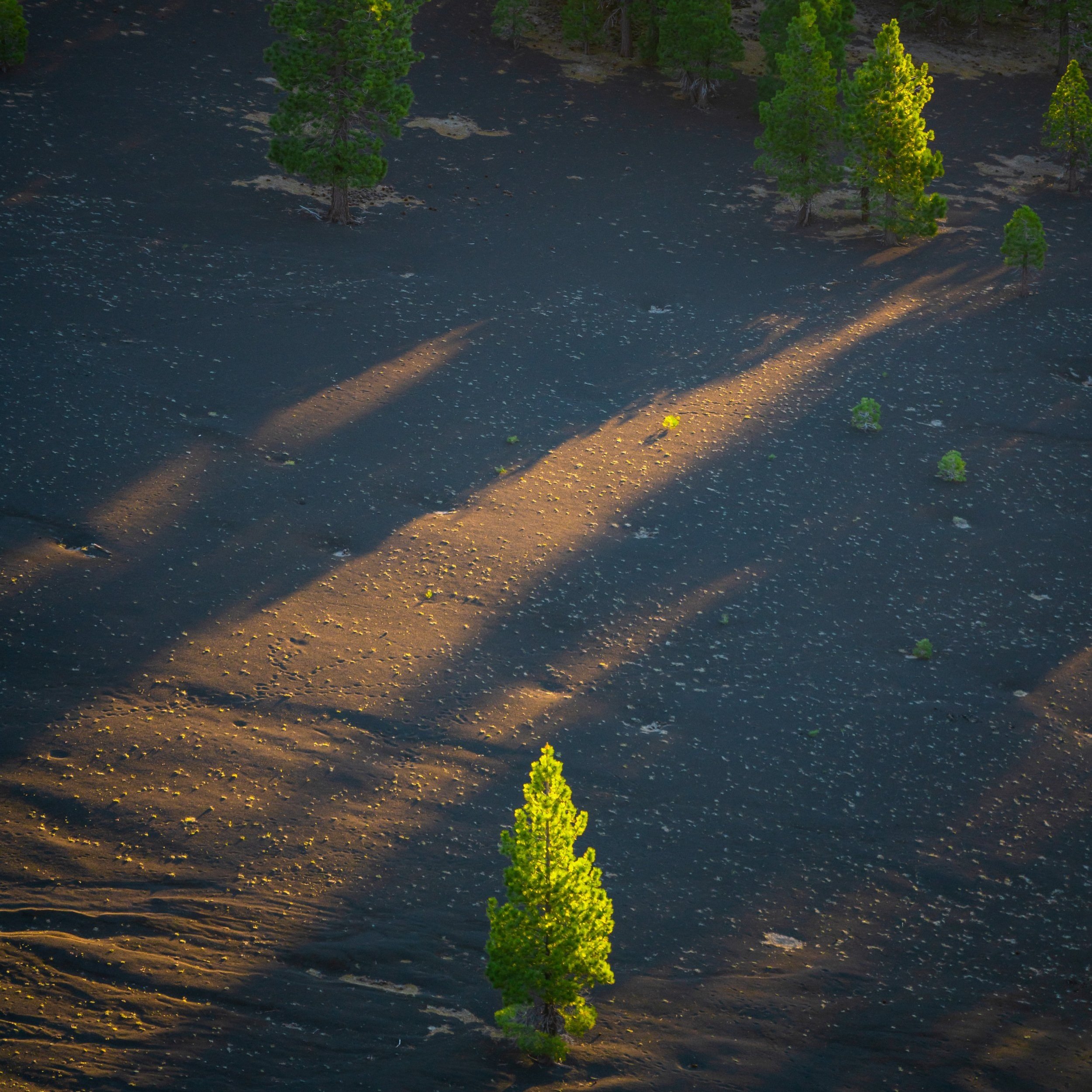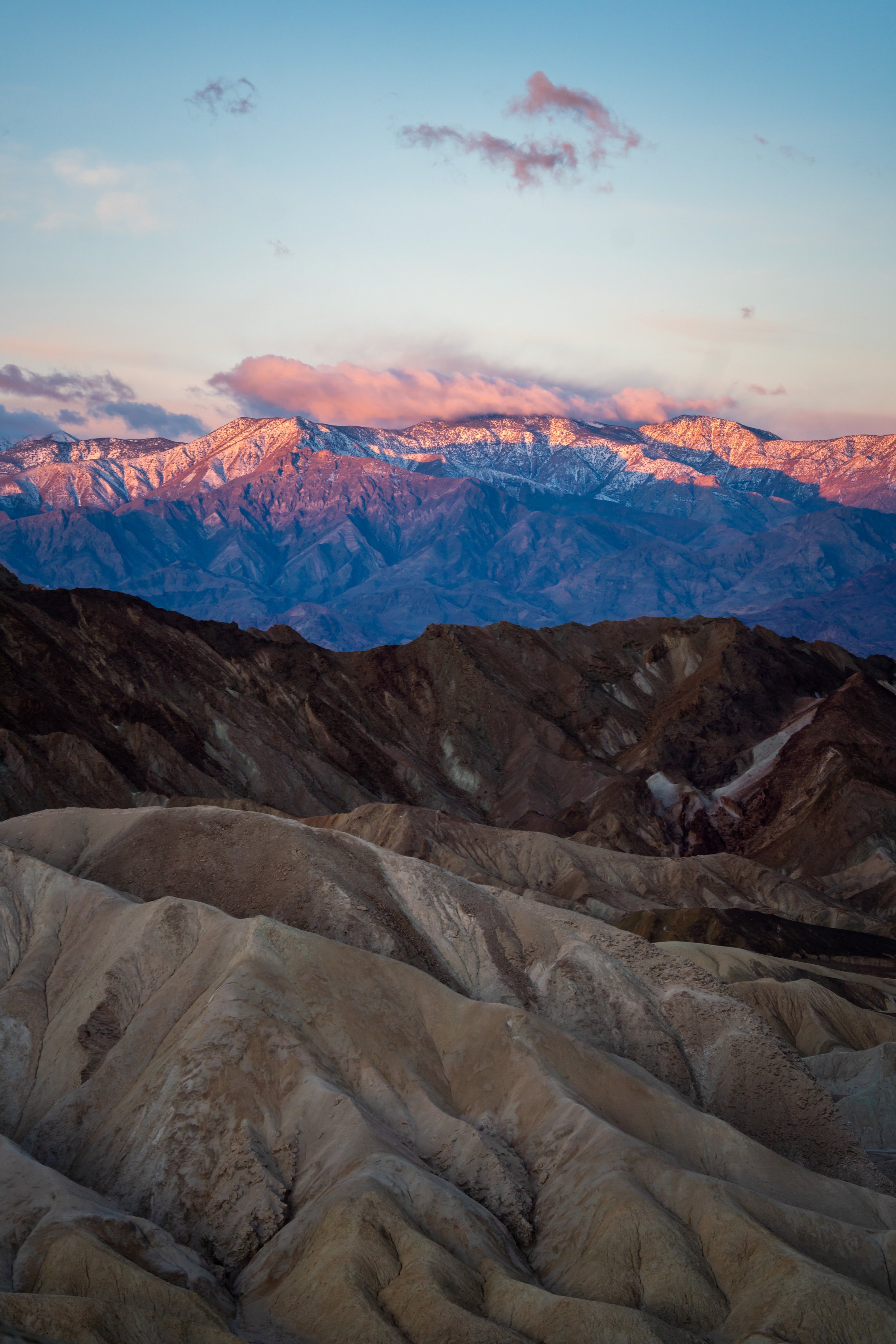Hiking the Maggie’s Peak Trail in Lake Tahoe, California
Distance: 4.4 miles / 7.1 km
Elevation Gain: 1,800 ft. / 549 m
The Maggie’s Peak Trail, located near Emerald Bay in South Lake Tahoe, is one of the best summit hikes in the Lake Tahoe Basin, with it’s expansive 360º views above the lake!
Now, it must be said that Maggie’s Peak is a very steep trail, gaining nearly 1,800 ft. (549 m) of elevation in just 2.2 miles (3.5 km).
However, if you’re up for the challenge, Maggie’s Peak can be a great trail at any time of the day, especially during the summer when you have the opportunity to cool off in Granite Lake on both the way up and down.
Maggie’s Peak Trailhead Parking
Parking for the Maggie’s Peak Trail is located on the south side of Emerald Bay within the paid Bayview parking area.
This day-use area is managed by the National Forest Service, but in my experience, they do not accept any kind of federal passes in lieu of the parking fee. Believe me, I tried.
Google Maps Directions: Maggie’s Peak Trailhead
Hiking Checklist - Lake Tahoe
The Lake Tahoe area is bear country, and being the case, here is a complete list of must-have things that you will want for any hike around Lake Tahoe.
Hiking the Maggie’s Peak Trail
Depending on your pace, the Maggie’s Peak Trail may take anywhere from one to three hours for the ascent.
To try to estimate your time, I talked to a relatively fit-looking couple that took two hours to go up, and my time was around 49 minutes, as I chose to hike without taking breaks.
In any case, be sure to fill out a free wilderness permit at the trailhead before hiking. These permits are not only important for accountability purposes but are also legally mandated by the National Forest Service.
Desolation Wilderness-Cascade Falls Junction
When the trail splits almost immediately following the trailhead, go right to stay on the Maggie’s Peak Trail.
The trail to the left is the Cascade Falls Trail, the other of the two most popular day hikes out of the Bayview Day-Use Area.
Then, almost immediately the trail starts climbing, which will remain nearly constant for the entire hike.
Depending on how early in the season you are hiking, micro-spikes may be necessary when you expect there to be snow on the ground, especially if it is melting during the day and freezing at night.
Granite Lake
At about 1 mile (1.6 km) and roughly 800 ft. (244 m) of elevation gain, the trail passes by Granite Lake, which makes for a great place to cool off from the steep ascent during the mid-summer months.
In any case, I waited until the end to jump in, which was great, as the much smaller Granite Lake was much warmer, in my experience, than Lake Tahoe down below!
Maggie’s Peak-Desolation Wilderness Junction
When you reach the split in the photo below, go left.
This left turn is like one big horseshoe, which leads to the summit ridge, roughly 300 vertical feet (91 m) below the top.
Furthermore, the trail to the right is the route that extends much further into the Desolation Wilderness, which is often treated as an overnight backcountry trip, rather than a day hike.
The tallest rock in the photo below is the true summit for Maggie’s Peak, but in my opinion, the better views are about where this photo was taken.
Maggie’s Peak (South)
According to the USGS, the summit of South Maggie’s Peak—the higher of the two summits—stands at 8,703 ft. (2,653 m), which is slightly taller than the northern summit by just over 200 ft. (61 m).



